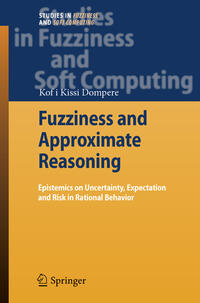
We do not perceive the present as it is and in totality, nor do we infer the future from the present with any high degree of dependability, nor yet do we accurately know the consequences of our own actions. In addition, there is a fourth source of error to be taken into account, for we do not execute actions in the precise form in which they are imaged and willed. Frank H. Knight [R4.34, p. 202] The “degree” of certainty of confidence felt in the conclusion after it is reached cannot be ignored, for it is of the greatest practical signi- cance. The action which follows upon an opinion depends as much upon the amount of confidence in that opinion as it does upon fav- ableness of the opinion itself. The ultimate logic, or psychology, of these deliberations is obscure, a part of the scientifically unfathomable mystery of life and mind. Frank H. Knight [R4.34, p. 226-227] With some inaccuracy, description of uncertain consequences can be classified into two categories, those which use exclusively the language of probability distributions and those which call for some other principle, either to replace or supplement.